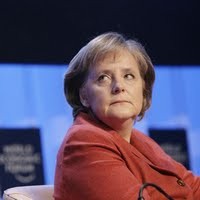How to manage trade relations with China, with an eye toward achieving reciprocity, is the million-dollar question on both sides of the Atlantic. The question was on prominent display at the 15th European Union-China summit last Thursday, where the two economic giants once again agreed to avoid protectionism, at least on paper.
Trade between China and the EU rose to $556 billion in 2011, but grievances on both sides continue to weigh heavily on the relationship. At the summit, Chinese Premier Wen Jiabao complained pointedly about the EU arms embargo against China as well as Brussels’ refusal to grant China market economy status that would result in preferential tariff rates. The EU’s biggest complaints center on what it considers to be unfair trade practices, in particular the disparities between the two sides when it comes to open markets: As the European Chamber of Commerce in Beijing recently complained, while Chinese corporations can successfully shop in the EU for businesses or even strategic public goods, such as the Piraeus port in Greece or the Düsseldorf airport in Germany, European corporations trying to operate in China find that most companies, let alone public assets, are either off limits or not for sale.
Though unhappy about this imbalance, the Europeans are for now accepting it with clenched fists in their pockets: They need continued Chinese engagement (read: liquidity) to solve the European debt crisis, particularly when it comes to purchases of European bonds issued by the EFSF. In this, the summit offered some reassurance.

